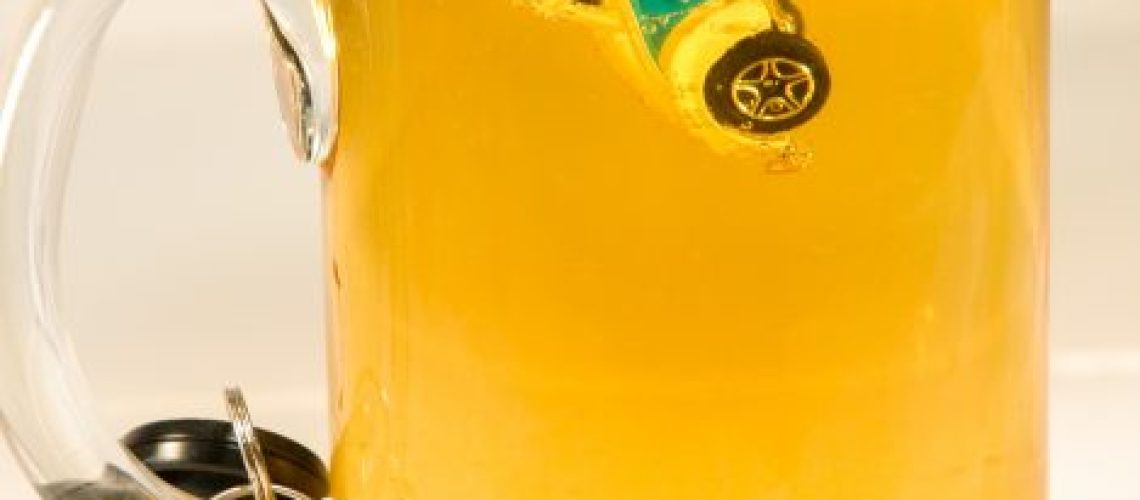Texas takes drink driving very seriously. It is estimated that about 40 percent of traffic fatalities on Texas roads are caused by intoxicated drivers. For that reason, the penalties for driving when intoxicated are severe. However, people are not strictly banned from driving after having an alcoholic drink.
Drink driving laws in Texas are governed under Texas Penal Code § 49.04.
DUI & DWI in Texas
Image Link
In Texas, for persons aged 21 years & above, you are allowed to operate a vehicle on the roads as long as your blood alcohol levels does not exceed .08 %. Exceeding this limit exposes you to a DWI (Driving While Intoxicated) charge.
For drivers under the age of 21, you cannot operate a vehicle at all if you consume alcoholic drinks. Any detectable amount exposes you to a DUI (Driving Under the Influence) charge.
The difference between a DUI & DWI in Texas is the age.
The strict rules on driving under the influence in Texas also extend to other circumstances including;
- If the police catch you with an open alcoholic beverage in your car, you could get fined up to $ 500;
- If you choose to transport a child under 15years of age in your vehicle while under the influence, you could lose your driver’s license, get fined up to $ 10,000, and get a jail term of up to two years.
How do you calculate your blood alcohol level?

Photo by Michael Discenza
You may think that you need to take a lot of alcohol to get to the legal alcohol limit in Texas, but the truth is you can only take one or two drinks. Here’s how to calculate your blood alcohol levels.
The number .08%, as applied to blood alcohol content, is confusing to most people as few know how to calculate the number of drinks to take to avoid exceeding the recommended blood alcohol levels. One thing to note is that your weight and gender will determine how alcohol is absorbed in your body.
Generally, a drink describes 12 oz. of beer of 4.5% alcohol, 1.5 oz. of 40% alcohol, and 5 oz. of wine with 12% alcoholic content. To calculate your blood alcohol level, you need to keep in mind the Oz. of drink you consume, the percentage of alcohol in it, your weight, gender, and the hours you spend drinking. You can then use this blood alcohol calculator to figure out your blood alcohol levels.
By the time you reach blood alcohol levels of .08%, you should have taken 2 or 3 drinks each hour. To ensure you do not hit dangerous blood alcohol levels, you are advised to take one drink per hour.
Commercial drivers in Texas
If you are a driver with a commercial driver’s license (CDL), your legal alcohol limit is .04.
Commercial drivers may include the following;
- Bus and truck drivers
- Private and for hire motor carriers
- Anyone who owns or leases commercial motor vehicles or who assigns drivers to operate commercial motor vehicles,
- Federal, state and local governments, Civic organizations (eg. disabled veteran transport, Girl Scouts,), and Churches
Commercial vehicle drivers have a reduced legal alcohol limit because of the size of the vehicles they drive. Larger vehicles, such as trucks, require more concentration and skill to operate safely.
Sobriety tests in Texas

Photo by Blake Cheek
If you are a commercial driver, the police can stop you and subject you to a random sobriety or BAC (blood alcohol concentration) test. Keep in mind that traffic police must have a reasonable suspicion to stop you because of drunk driving in the first place. You should remain polite during such interactions, as most drivers end up being arrested for drunk driving simply because of erratic and violent behavior.
If the police suspect you of being drunk behind the wheel in Texas, they may administer the following test;
- Horizontal gaze nystagmus test
- One-leg stand test, and
- A walk and turn test.
The police officer is allowed to administer one test or a combination of tests.
In addition, police can also administer breathalyzer or blood tests.
Can you refuse to take the field sobriety tests?
In Texas, you do not have to submit to field sobriety tests. When requested by the officers to exit your vehicle after a traffic stop, do so and then, politely inform the officer that you do not wish to participate in the field sobriety tests.
You will probably get arrested, especially if the officer has reasonable cause to suspect that you might be intoxicated. However, you have a right to not incriminate yourself.
You can refuse a breathalyzer test as well, and should you do so, the officers will most likely apply for a warrant from a judge for a blood sample. You must comply with a warrant.
DWI penalties in Texas
If, after a sobriety test, you are found guilty of driving under the influence, you will be convicted of a DWI. The penalties will depend on whether the number of prior offences and the amount of alcohol in your system.
A driver convicted with a DWI in Texas may end up paying a fine or serving a jail term. In severe cases, his or her driver’s license may get suspended.
DWI offences are a class B misdemeanor for alcohol levels exceeding .08 while those exceeding .15, they may be charged with a Class A misdemeanor.
It is important to note that prior convictions determine the penalties as follows;
- First offense: Fines of up to $2,000; 6 to 180 days in jail; license suspension of 90 days to 1 year; and an annual fee of up to $2,000 for 3 years to retain your driver’s license.
- Second offense: Fines of up to $4,000; 1 month to 1 year in jail; license suspension for at least 1 year; and annual fee of up to $2,000 for 3 years to retain your driver’s license.
- Third offense: $10,000 fine; 2 to 10 years in prison; license suspension for 1 to 2 years; and an annual fee of up to $2,000 for 3 years to retain your driver’s license.
- DWI with a child passenger (under the age of 15years): This is a State Jail Felony, even with no prior DWI convictions, and carries a fine of up to $10,000 and jail time of 180 days to 2 years. You will also lose your driver’s license for 180 days.
Penalties also may include community service, DWI education and treatment programs, mandatory use of an ignition interlock device.
For minors aged 21 and below, the DUI penalties include;
- First-time DUI is a Class C misdemeanor, with fines of up to $500 with no jail time. However, your driver’s license may be suspended for 60 days, 20 to 40 hours of community service and to complete an alcohol educational program.
- Second and third DUI: After two convictions, a third offense is a Class B misdemeanor with a fine of up to $2,000, jail time of up to 180 days for minors who are above the age of 18.
The long term repercussions of a DWI & DUI conviction for drivers include loss of job opportunities and chances to attend colleges.
Are you facing a DWI or DUI in Denton, Texas?
While everyone is aware of the dangers of drinking and driving, sometimes we get on the wrong side of the law.
If you find yourself in trouble with the law because of driving under the influence in Texas, it’s advisable that you seek the services of a DWI attorney in Denton, Texas, to help you plan your defense.
However, the better solution is to always keep within legal limits, take a Taxi or have a designated driver.

